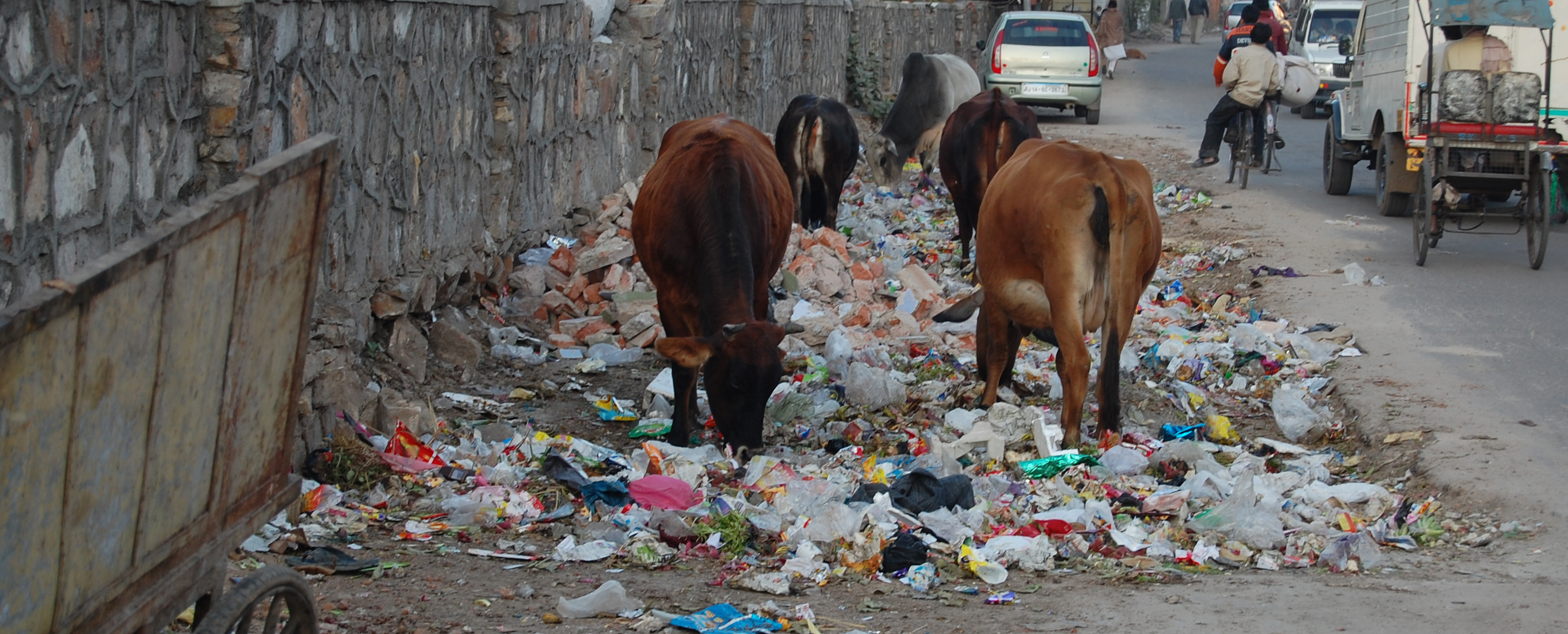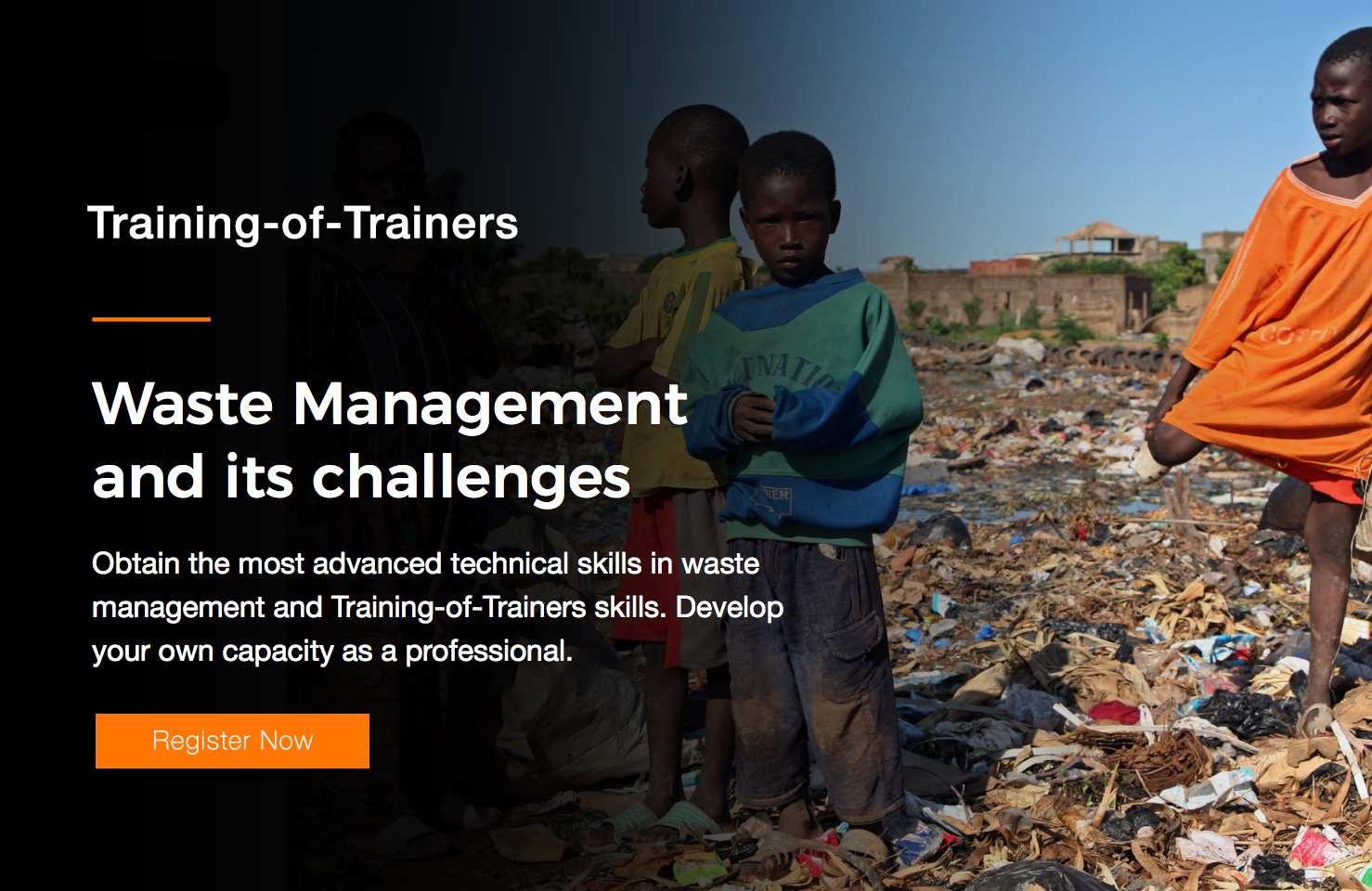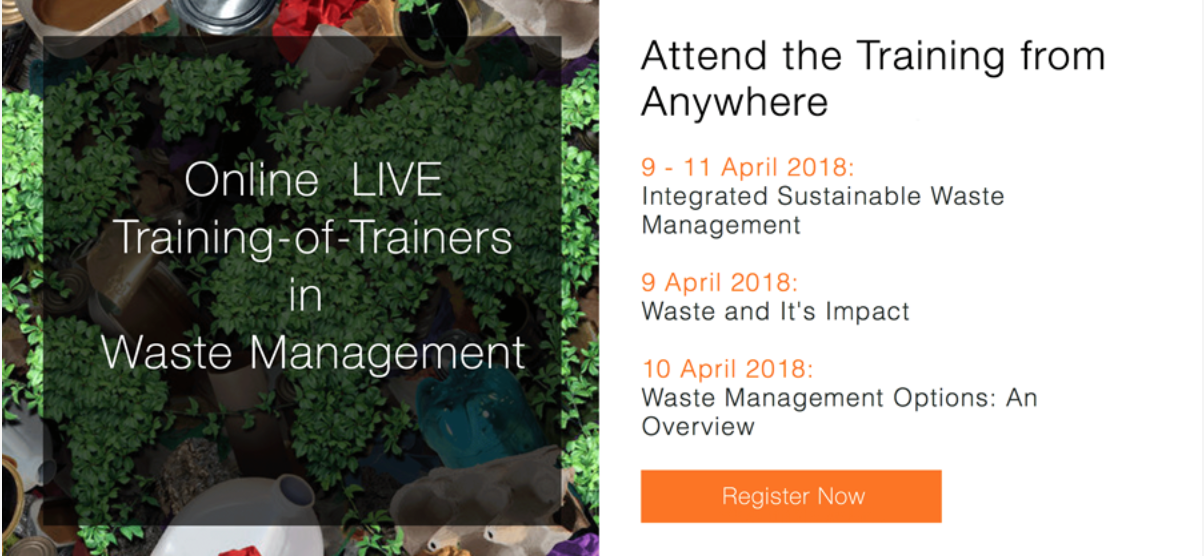Waste Management and its Challenges

‘Jaipur cows eating trash’ Creative Commons license via Wikimedia Commons
The Importance of Integrated Sustainable Waste Management
To manage waste in an effective way appears to be one of the greatest challenges facing humanity and the planet. The ongoing trend of industrialization and economic growth have resulted in increased municipal solid waste especially in cities with high population. With recent estimates putting the global waste production from cities alone at 1.5 billion tons, and projecting an increase to 2.3 billion tons by 2025, it’s a problem that’s only going to get worse.
The concern is serious, as increasing quantity of waste negatively impacts every aspect of society. Failing to address the problem strategically and on sustainable way leads to the creation of long term environmental and public health disasters influencing national economies on entirely destructive way.
Identifying the needs
If not addressed effectively, waste generated has a negative impact on all countries regarless of their socio-economic development. However, developing countries with less developed infrastructure have further to go in order to tackle the problem. As urbanization continues to take place, the management of solid waste is becoming a major public health and environmental concern in urban areas of many developing countries.
Developing countries often display an array of problems regarding their typical waste management system, including low collection coverage and irregular collection services, unpolished open dumping and burning without air and water pollution control, and the handling and control of informal waste picking or scavenging activities. Development of effective solid waste management systems in developing countries has been even more demanding due to absence of technical, financial, institutional, economic, and social factors.
In other words, developing countries frequently suffer from the lack of human resources with technical expertise necessary for solid waste management planning and operation. This is often combined with insufficient and/or poorly managed funds allocated to resolving waste problems, as well as with weak legislation and coordination among main institutions in charge of waste issues. All these influence on low public awareness and education on waste and its devastating impact.
Where to start then and how to change existing practice? There are several crucial factors involved in identifying the needs of local communities. The adequate assessment of the composition and volume of waste can be a deciding factor in choosing an efficient way to manage its disposal. Other important measures include examining the options for introducing the most effective legislation and regulations, ensuring accessibility of waste for collection, and the existing level of public awareness.
In each country, region and community we must identify opportunities to minimize waste output. This is being addressed in many countries by building a system
Why it’s so important
When efficient waste management isn’t present the impact on the community can be devastating. The waste poses a threat to the environment. Polluted water flowing from dumps and disposal sites can cause serious pollution of the surface water, which can also impact marine life, and ultimately leads to a decline in health of the local population.
A build up of solid waste can also lead to soil contamination, especially during the rainy season, which spreads the secreted toxins at a quicker rate. Relocating waste management to areas sufficiently removed from public spaces to allow for incineration or disposal in a safe manner helps to decrease the risk of exposure to biohazards and reduces pest infestation.
Uncontrolled waste management can lead to medical and healthcare waste being mixed with household waste. This increases the risk of poisoning or injury to children and adults who are working sorting waste.
Indiscriminate burning of waste can cause major air pollution and increases greenhouse emissions. As well as the immediate affect on the local air quality, often accompanied by an increase in respiratory diseases, it also contributes to global warming.
A build up of solid waste promotes the breeding of rats, flies and mosquitos, all of which will cause the spread of disease.
How waste management can help a community
When waste management is handled properly it has several benefits for the local community. As well as avoiding the negative impact of the above problems, it can also be a vehicle for change. Through job creation and an improvement in health whole communities can be given a new lease of life.
Recycling can also be used to reduce future waste by ensuring a portion of solid waste is reused. Whether it’s on a small local scale, or a larger industrial scale, many useful things can be generated from proper waste disposal. Everything from electricity generated through incineration and composting, to furniture being built from recycled plastics, are projects being refined all over the world.
Recycling also helps to conserve local resources by reducing the need to manufacture using new raw materials.
Leading the charge in an ever-changing world
With political instability, social unrest and poverty gripping some nations, the ability to educate and implement efficient waste management can be a challenge. There are several NGOs working all over the world to identify and train key individuals, work with whole communities, and implement sustainable change within municipalities and governments.
Committed specialists with decades of experience are taking it on their own shoulders to help underdeveloped communities to take control of their own waste management, and improve their overall health and local environment in the process. They are being proactive in educating communities, arranging waste collection, and ensuring the infrastructure is in place to maximise the disposal.
Through qualified training, experts and professionals working with NGOs, communities, governments and others in waste related sector can obtain the necessary technical skills as well as training skills and how to train others in the topics.
Maximpact and qualified technical training expert in waste management has designed a training with the following objectives:
- To demonstrate understanding of the wide range of environmental, health and social issues related to waste disposal and management
- To understand what skills are required to prevent pollution and to transform waste back into wealth and place that wealth at the service of the community
- To identify practical, integrated and sustainable solutions for waste management
- To enhance practical skills of NGOs in delivering waste management projects
- To obtain training of trainers skill sets in order for participants to carry out trainings to their communities
- To understand how to transfer knowledge to others
Find out more about the training
About the Training-of-Trainers in Waste Management
Your greatest asset is your knowledge.
Maximpact Trainings are carried out by a live trainer through an online conference classroom, where participants are able to ask questions, participate in discussions and conduct practical exercises.
This method of delivering training is one of the most efficient ways for you to obtain the needed knowledge within the set training days. This is perfect for those who find it difficult to set time aside to do self-paced e-courses.
Training is carried out by a technical field and training expert. This allows the participants to receive today’s most advanced information on industry practices and know-how.
Participants will acquire not only first-hand knowledge but also essential tools, tips and tricks to carry out their job tasks on the most efficient way.
The training is designed around the “Learning by Doing” methodology, where practical exercises simulating real life situations will be comprised of 60% of the training.
Upon successful completion of training you receive a certificate acknowledging your training accomplishment.
After each training, Maximpact offers post- training mentoring virtual assistance where trainees can reach out to the expert trainer for further advice and support.
Why Training is Important?
If you were given the choice between two different pilots—one was trained, the other not—which one would you choose? But what if there was no “up-front” cost for the untrained pilot? You still wouldn’t do it? Yet many business owners do not recognize the importance of employee training.
Reasons for training are:
- Training boosts motivation and self confidence resulting in happier staff
- Staying up to date and ability to perform different skills will keep your value higher
- Obtaining new knowledge and skill sets will impact positively on your performance both quantitative and qualitative
- Increased productivity and possibly fee/salary increase
Don’t miss your opportunity to invest into your own capacity.

